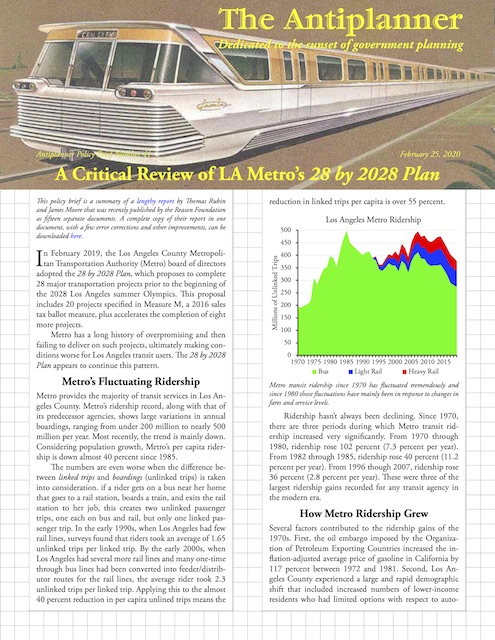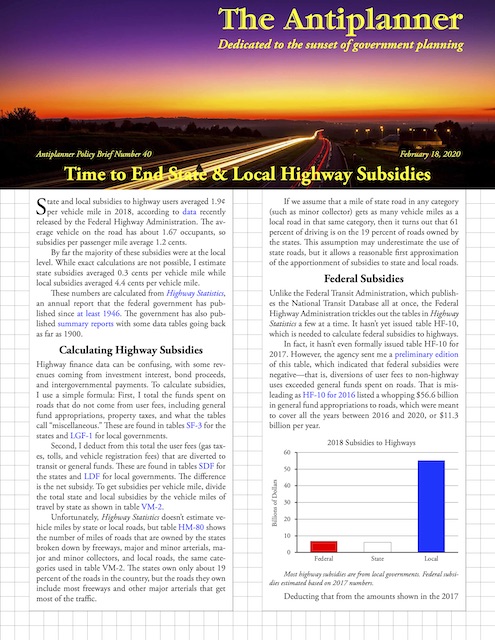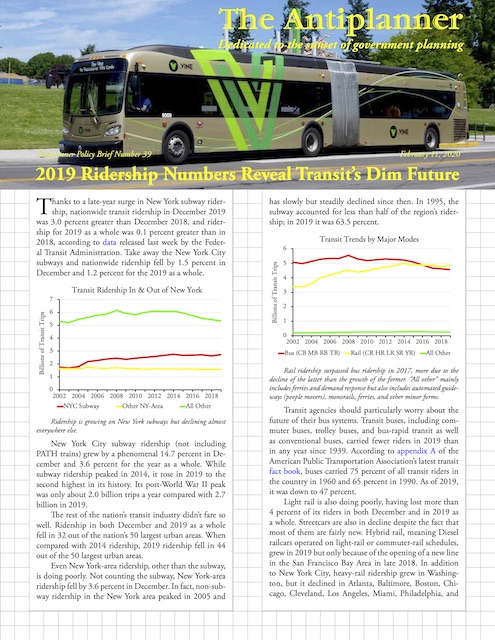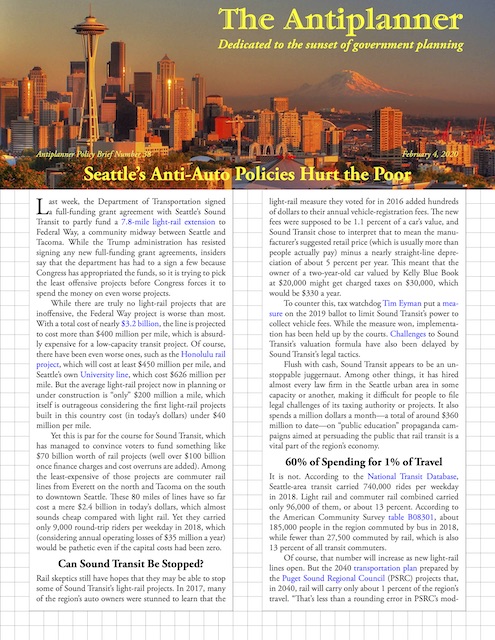In 1991, Congress passed the Intermodal Surface Transportation Efficiency Act. It should have been called the Obsolete Transportation Inefficiency Act, as among other things it created a multi-billion-dollar annual slush fund to give to cities to build new rail transit projects. This fund, informally called New Starts and more formally called Transit Capital Investment Grants, had no limit on the amount of money any city could take out of it, which gave cities incentives to propose the most expensive projects they could so they could get the most “free” federal money.
This law was actually a continuation of a 1973 law that allowed cities to cancel planned interstate freeways within their borders and spend the federal dollars that would have gone towards building those freeways on transit capital improvements instead. The 1973 law was instigated by then-Massachusetts Governor Francis Sargent, who wanted to cancel some freeways in Boston but didn’t want to be accused of “losing” federal transportation dollars. Boston, of course, has lots of rail transit and could easily absorb the federal dollars from a cancelled freeway by buying new railcars, installing new signals, replacing track, and so forth.
Sargent’s law gave hope to Portland Mayor (and infamous pedo) Neil Goldschmidt, who wanted to cancel an interstate freeway in east Portland. But Portland’s transit agency, TriMet, only operated buses, and if it used all of the freeway funds to buy new buses, it wouldn’t have enough money to operate all of those buses. Continue reading











